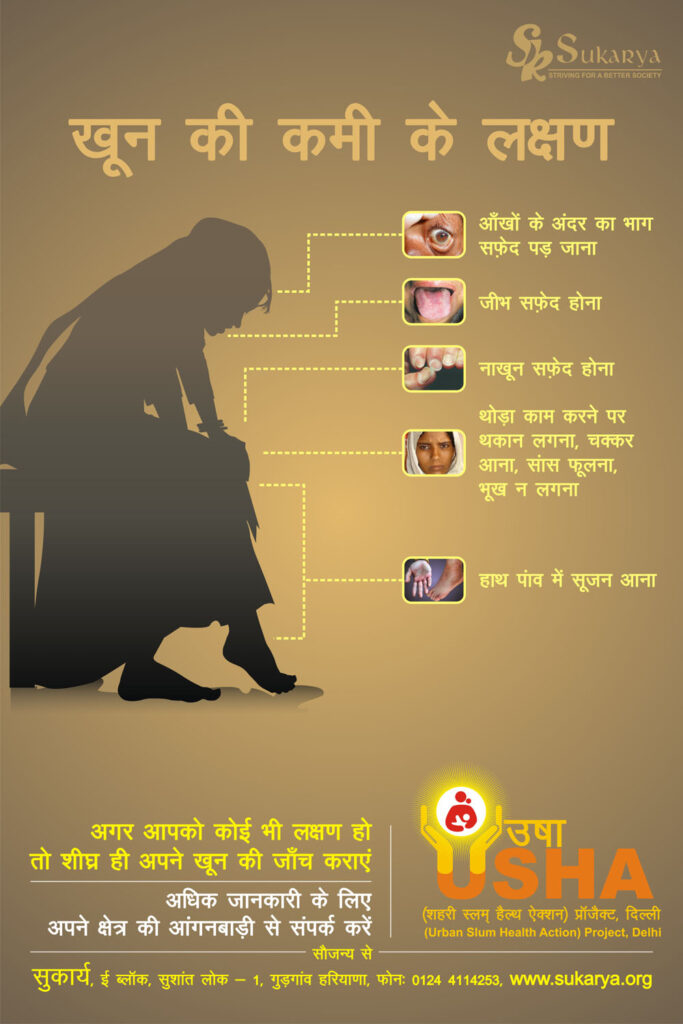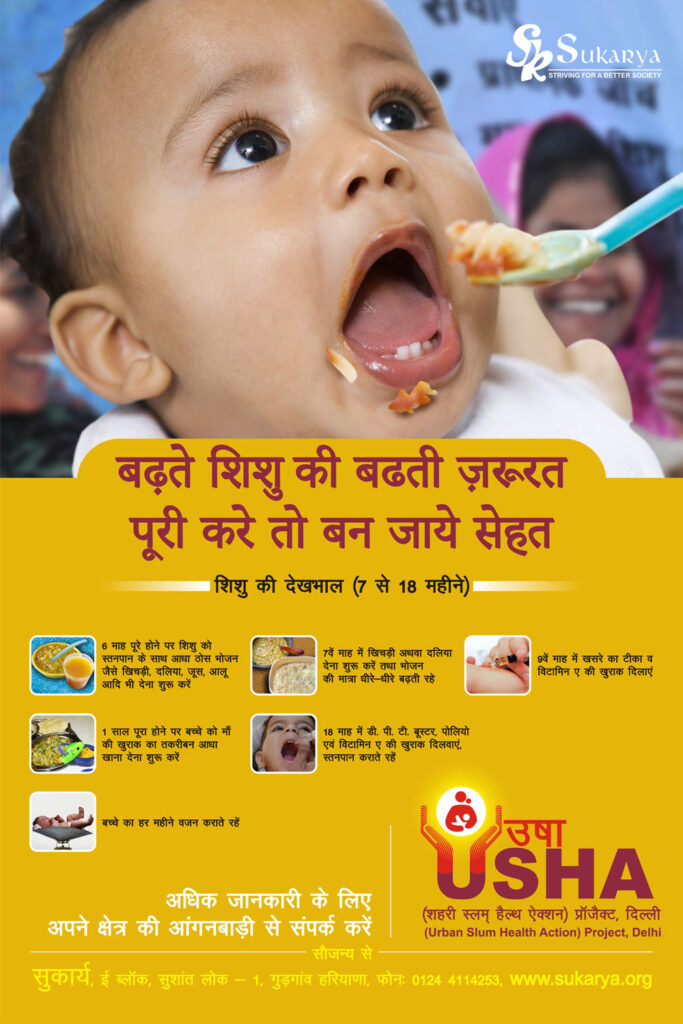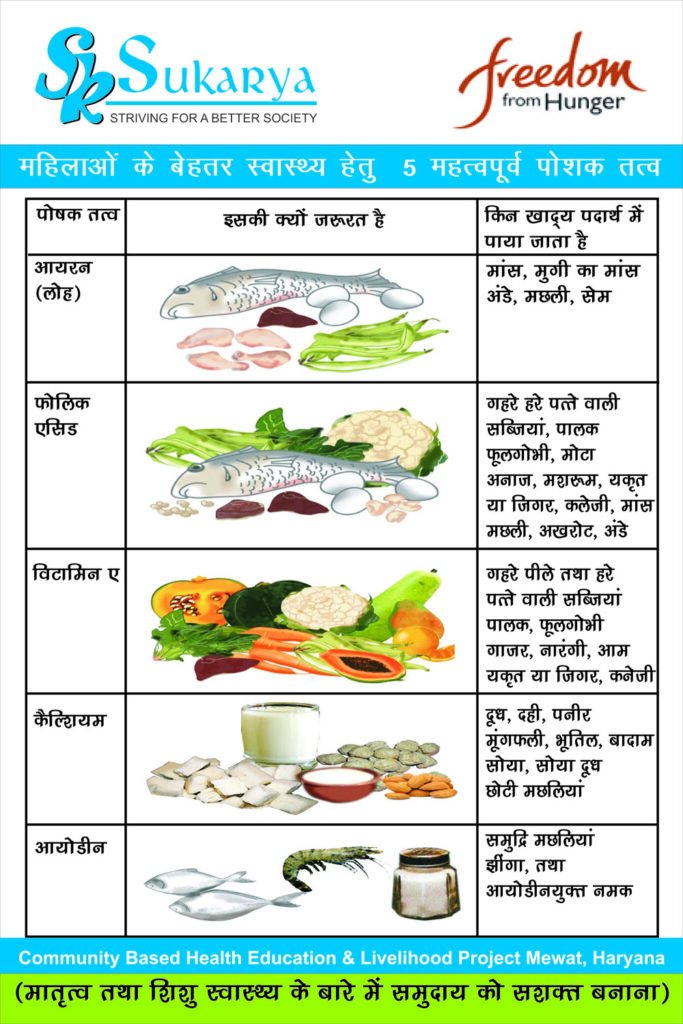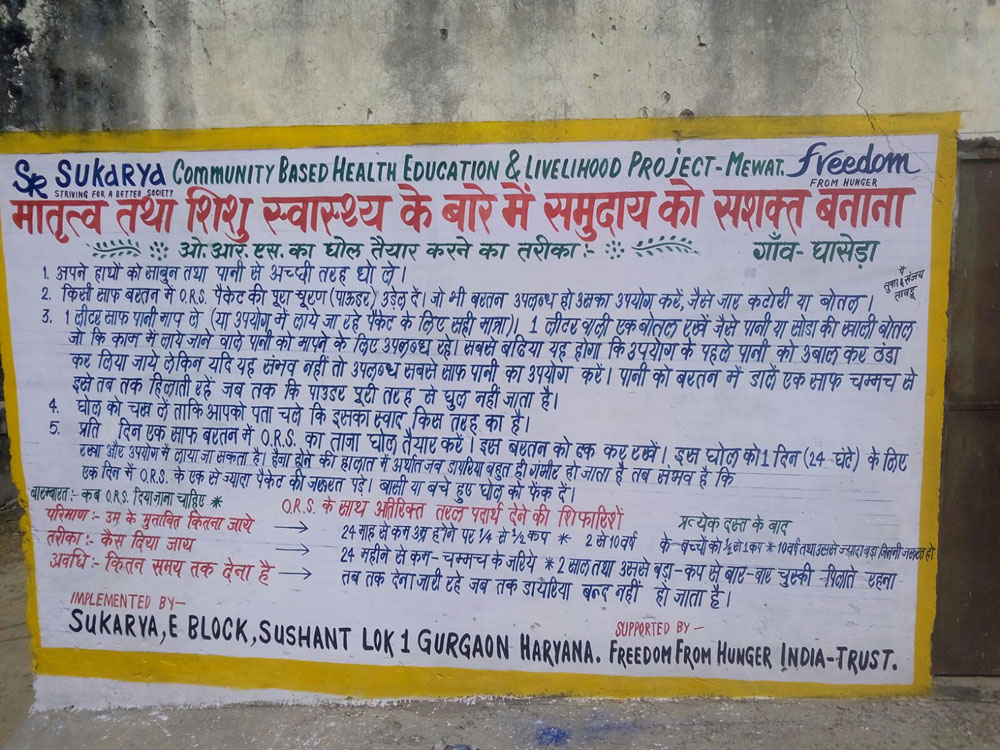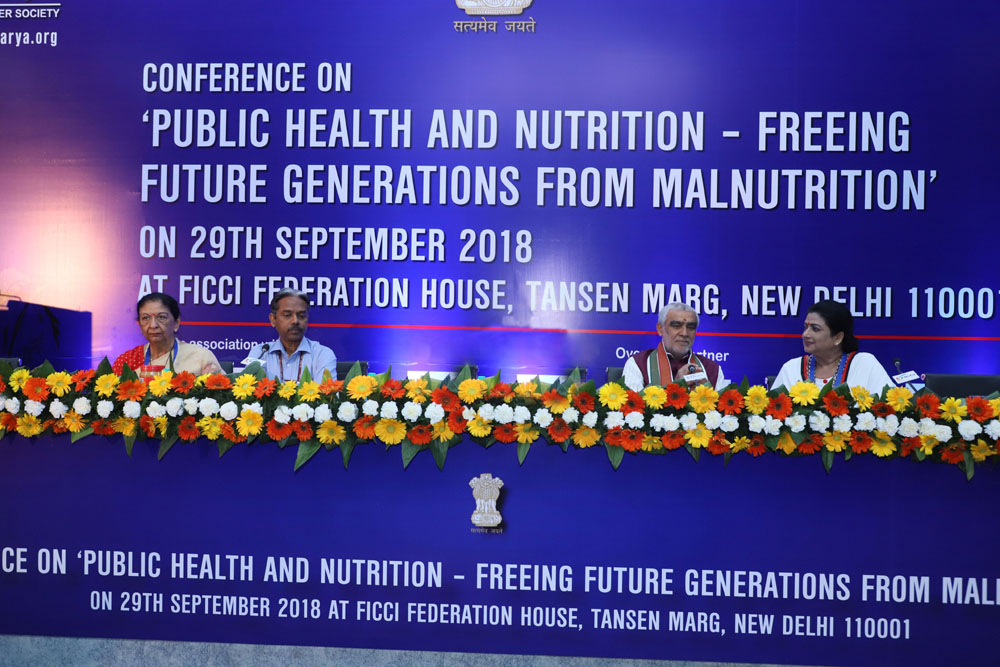by Meera Satpathy
“I am a MOTHER,
I deserve to be loved and supported.
I have a child and
I have the courage to ask for help and emotional support.”
The above lines seem to be the unspoken communication of each mother of our country who does not have the access to basic medical care.
If a mother is malnourished during pregnancy, or if her child is malnourished during the first two years of life, their physical and mental growth and development may be slowed. This damage incurred cannot be repaired at a later date and continues to affect the child throughout their life.
Malnutrition and anemia are widely prevalent in India. The recent National Family Health Survey (NFHS-4) 2015–16, has put the spotlight back on the nutritional status of children in India as it shows that less than 10% of the children, below two years of age received adequate nutrition. A child’s brain develops rapidly during the first two years of life and malnourished children run a high risk of permanent cognitive problems. The data also shows that 35.7% of the children below the age of five were underweight, 21% suffered from wasting and 38% children were stunted. Anemia too is widely prevalent among children in India. There is a growing realization that malnutrition cannot be viewed in isolation only as a nutritional problem, but is determined by multi-faceted complex social, economic and cultural factors as well deprivation due to lack of access to safe water, sanitation and health facilities.
It is important to recognize that a weak child today will make a weak nation tomorrow so the time to act is now and be the change makers wherever we are.
The estimates are worrying.
- Poor nutrition causes 45% of the deaths of children below 5 years of age or 3.1 million children each year.
- 815 million people, or 1 in 9 people across the globe do not have enough food to eat every day.
- 27% adolescents in developing countries are iron deficient.
- 66 million children go to school hungry across the developing world, preventing them from reaching their fullest potential.
- Estimates of stunting, wasting and anemia in India are very high.
- Malnutrition affects every third individual.
- India is home to 40% of the world’s stunted children.
Voices from the grassroots including Panchayat members, frontline workers and beneficiaries receiving services stressed the difference that Sukarya has made in the lives of women and children in the villages and slums through increased institutional delivery, implementation of breastfeeding practices, immunization, using iron kadhai (pans) for cooking greens and holding regular meetings and discussions regarding public health and nutrition etc. However, it was also mentioned that there are villages and slums that remain unreachable and services must be extended to them as well.
CONCERNS OVER UNDER-NUTRITION
India witnesses massive economic losses each year due to under nutrition of children, assembled intervention is necessary to reverse current state of affairs — Millennium post dated 14th September 2017
Buzz Aldrin the second man on the moon was quoted as saying: “If we can conquer space, we can conquer childhood hunger. “Sadly, even today, 248 million children across the globe are suffering from one or the other form of undernourishment –stunting, wasting and obesity. It accounts for 45 percent of child deaths. The significance of problem is relatively higher in India as 20 percent of world’s child population, it has one of the worlds ‘s highest malnutrition rates. The root of the problem lies in gross negligence of public investment in healthcare facilities, let alone a focused intervention in children’s health amenities.
It’s all becoming huge concern and challenge for government to tackle the existing situation.
Sukarya is one of the few organizations in country which is consistently working on Nutrition issues for last 20 yrs. under its maternal and child health program. Sukarya realized the need for nutritional intervention in very early stage of community development work and since then organization is striving to improve the situation.
I can list few key Sukarya projects which had nutrition interventions with significant impact on targeted group and communities:
1. Prevention of prevalence of Anemia and malnutrition with support of Population foundation of India — 2006–2009
2. Men in partner project with support of concern India -2009–2010
3. KIRAN Project with support of Population Foundation of India — 2009 -2011
4. Hifazat Project with the support of Power Grid Corporation of India — 2011–12
5. Hifazat 2 –self sponsored — 2012–2013
6. Community based health Education Project with support of Freedom from Hunger India trust -2013–2015
7. IRDP Project with the support of Bird group — 2011–2014
8. IRDP 2 Project with the support of Bird Group -2015–2018
9. USHA Project — Preventing anemia and malnutrition among mothers [15–49 yrs.] & children [0–6 yrs.] with the support funds from Annual Airtel Delhi Half Marathon (ADHM) — since 2013 and still continuing.
I can never forget the nutrition workshop“Santulit Aahar — Phalta Phulta Parivar “ (which means Balanced diet and healthy family), organized on December 13, 2008 in village Bandhwari to develop awareness on what constitutes a healthy dietary pattern for different age-groups and motivate the participants to adopt these. In this workshop a recipe book was published by Sukarya ‘Prabhavshali Vyanjan Vidhia’ (in Hindi) — that provides simple recipes that are easy to prepare using locally available ingredients in a short time and is rich in iron and vitamin C. The recipe booklet was developed as a simple information tool helping towards prevention of anemia by giving information on simple food preparation that if followed ensures the requisite adult daily requirement of iron in one’s diet.
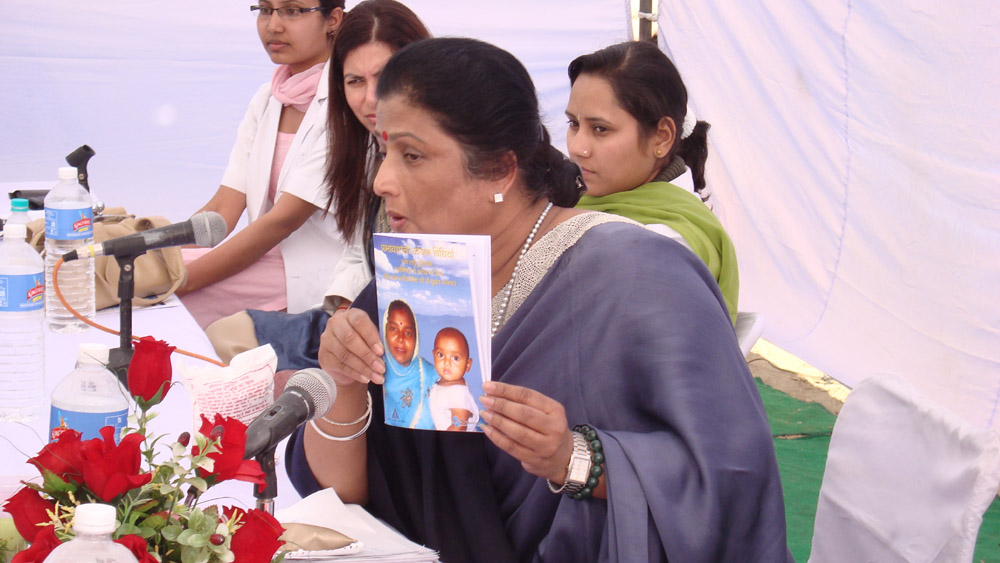
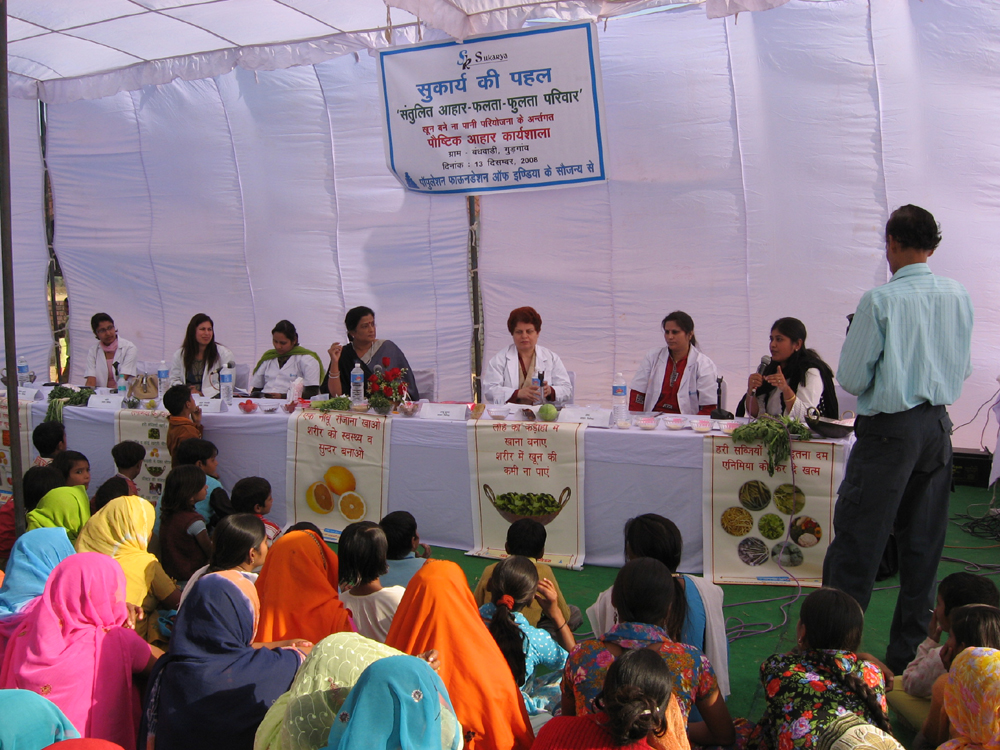
This shows our commitment to reduce malnutrition and undernourishment through multi-pronged strategy targeted at three key areas:
– Building Awareness and changing the attitudes and practices of people so that they prepare and consume healthy, nutritious meals using inexpensive locally available ingredients.
– Strengthening and promoting breast feeding for lactating mothers.
– Providing micro-nutrients and essential supplements
Sukarya has intervened with appropriate strategies to cater each group with customized approach. We also believe that issues are multi faced, multidimensional and interrelated with each other. Issues cannot be seen in isolation. Therefore, right from the inception Sukarya has adopted comprehensive approach to attain the desired result. Nutrition issues are not only about lack of food and resources but also about lack of access, knowledge, information, dietary habits, socio-cultural dynamics and Gender aspects.
Sukarya works on both demand and supply vertical to ensure effective results. The simple, effective and community friendly approach and appropriate strategies like participatory planning, involvement of men and significant others, key community stakeholders, visual display as an tool, simple medication and home cooked food, rigorous follow ups, modified age old practice couple counseling, referrals and connecting with government, personal touch to each client/beneficiaries and prompt and immediate solutions against the old procedural work have yielded tremendous results.
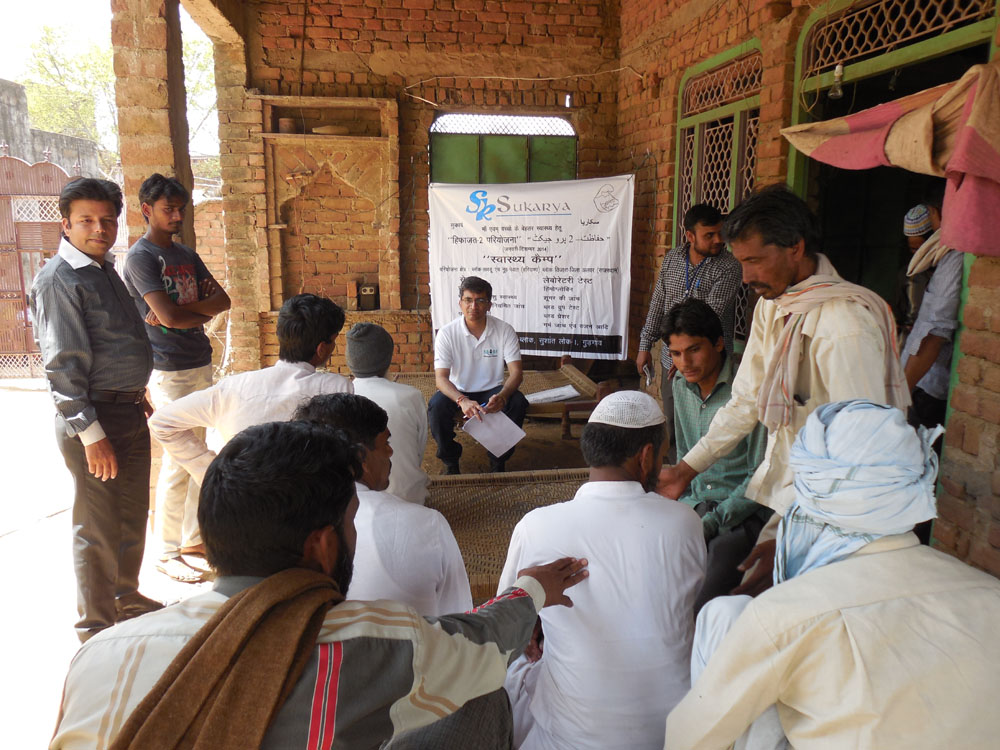
Followings are the key activities which led for significant improvement in Nutrition status and reduced the prevalence and incidence of anemia and malnutrition in intervened areas:
Promotion of locally available low-cost Nutrition food grains, leafy vegetable and fruits
Nutrition demonstration workshops
Use of Iron utensils & Double Fortified salt
Health Education sessions in School
Nutrition demonstration workshop at community level
Establishing nutrition center in villages
Setting up cereal processing unit with women Self Help Groups (SHGs)
Medical health camps/Hemoglobin test and Counseling
Distribution of (Iron & Folic Acid) IFA tablets
Calcium and vitamin A supplements
Promoting Exclusive breastfeeding and Colostrum feeding
Promoting and providing Micro nutrients
Group sessions /health sessions / and Special cooking demo /classes with pregnant and lactating women.
Teaching Nutrition Recipe/Cooking classes specifically targeted to adolescent girls, Children, pregnant and lactating women and targeted anemic patients
Nutrition workshops at the Community level
It has been seen that malnutrition is the most common and critical health problems prevailing among the rural and urban poor that impacts their overall health and well-being. Through nutrition demonstrations and workshops information and knowledge were imparted on balanced diet that can be prepared from cheap, nutritive, locally available food. The demonstrations held under the guidance of a nutritionist were organized to showcase healthy cooking methods to encourage people to adopt healthy cooking practices. Since women are primarily responsible for cooking in the household, a change in their eating and cooking habit would result in positive change in the dietary habits at the household level. Thus, the focus of the intervention was specially to sensitize the women and bring about a change in their cooking methods, for instance the cooking of Green Roti and Amla Chatni is frequently demonstrated (especially for winter months). The ingredients for the Green Roti are relatively inexpensive and easily available like Soyabean Aata, Chana Aata, Palak and Bathua. Chatni is another simple and easy-to-make recipe iron-rich made from Amla, Dhania, Ginger, Garlic and Salt. This kind of workshop has been an ongoing activity of Sukarya.

I am thankful to our women Self Help groups (SHGs) who helps and leads our initiatives on processing & packaging of healthy spices & cereals almost every day. Healthy Multigrain Flour, rich in nutrients especially protein and phosphorous, high in fiber, complex carbohydrates with ingredients like Jau (Barley) , Bajra (Millet) , Chana (Gram) & Makka ( Maize); Healthy Multigrain Dalia, a good source of thiamine vitamins and minerals essential for body with Ingredients like Wheat, Moong, Chana (Gram), dry peas & soy); Til Chutney containing sesame seeds which are of great value in controlling high blood pressure which in turn helps to lower cholesterol level; Healthy Atta (whole wheat flour); Jaggery & Peanut Laddu and Sattu (Black Gram Flour).

THE BIG LEAP
Conference on Public Health & Nutrition: Freeing Future Generation from Malnutrition, New Delhi Sept.29, 2018. https://youtu.be/hhw5Wr12zCA
High malnutrition is also among the greatest challenges facing global public health and well-being in large parts of Asia, Africa and to some extent in South America. It is one of the biggest drivers of disease, maternal and infant mortality and poor child growth, apart from other adverse social and economic consequences. The indicators of Sustainable Development Goals also reflect the role of nutrition in sustainable health, women’s empowerment, and poverty and inequality reduction.
In this rapidly changing world where technology is continuously advancing, there are new breakthroughs from which we can learn. Keeping this in consideration, Sukarya organized its first international conference on public health and nutrition: freeing future generation from malnutrition on September 29th in New Delhi. The conference was organized by Sukarya in collaboration with the National Commission on Protection of Child Rights (NCPCR), The Ministry of Women & Child Development, The Maternal & Child Health (MCH) Program at the Milken Institute School of Public Health at The George Washington University in Washington, D.C., and Sukarya USA.
The conference was also attended by Maternal & Child Health experts from Bangladesh and Nepal and focused on following topics: Maternal and Child Health and Nutrition (Stunting, wasting, under-nutrition, anemia, BMI etc & Nutrition related cultural habits, lifestyles and choices), Public health, Nutrition and Diseases (Water, Sanitation, Hygiene & Access to Health facilities and treatment), Correcting Micro-Nutrient Deficiencies,
Nutrition related Policy and Legislation (Policies, Guidelines, Programmes, Legislation, Rules, Regulation), & Role of Technology for an Efficient System of Public Health and Nutrition.
Sukarya has constantly endeavored to expand its knowledge and resource base on the subject to improve and upscale the effectiveness of its efforts in tackling malnutrition. This requires meaningful and interactive discussions with stakeholders and experts in this sector. The purpose of this Conference was to facilitate open exchange of ideas and to deliberate on strategies that that will be effective in combating malnutrition and freeing our future generations from it.
Well timed and in sync with Poshan Abhiyaan, a multi-sectoral program to address maternal & child under-nutrition and a policy measure announced by Prime Minister Modi, the conference had the following objectives:
— To share and discuss best practices, learning and challenges while improving Public health and nutrition especially for maternal and child health, MCHN initiatives.
— To share, learn and understand the use of technology, nutrition & promotion of indigenous food habits and community-based care to improve MCHN.
— To provide a forum to bring together policymakers, civil society organizations, practitioners and experts from the field of Nutrition to synergies the efforts towards the issue. This would also offer an opportunity to country’s nutrition policy community to discuss priorities for nutrition in India and feed into country’s policy perspectives, and programs.
Sukaya is looking forward to scaling up and build partnerships with government and other organizations in the areas of maternal child health, nutrition and adolescent reproductive health to achieve national goals through local initiatives. Sukarya and the Maternal & Child Health (MCH) Program at The George Washington University (GWU) has signed a letter of intent to collaborate on future initiatives focused on new and innovative intervention research to improve maternal and child health outcomes while working towards improving the health of women, adolescents and children in India. I am very pleased to mention here that the MCH program at the GWU are our technical partner for our latest intervention on Maternal Child Health project in Haryana (30 villages in Nuh (Mewat)) and Rajasthan (30 villages in Alwar).
I have learned from my experience in dealing with my family members, near & dear ones and serving in my extended community families for years that “food” should be treated like medicine and should be taken seriously. It plays an important role to maintain health and prevent diseases. Therefore, it becomes extremely important that we must promote healthy nutrition in all age groups, (from infant to old) to have healthy citizens and healthy country.

